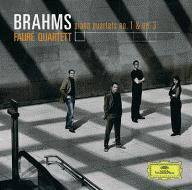Two New Classical Music CD Releases
The Royal Flemish Philharmonic turns in powerful performances of three great 20th-century masterpieces on two new recordings for naïve’s sister label, ambroisie, for release in the U.S. on January 27, 2009.
The first release features Shostakovich’s landmark Symphony No. 5 conducted by Jaap van Zweden (pictured), the long-time concertmaster of Amsterdam’s famed Royal Concertgebouw Orchestra, whose rapid rise in the world of conducting – he left his position with the orchestra in 1995 after 16 years – includes a prominent new post in America. He took over the music directorship of the Dallas Symphony Orchestra in the 2008-09 season, where he is winning consistent acclaim for his intensely expressive performances. Van Zweden also began his tenure as Chief Conductor of the Royal Flemish Philharmonic in the 2008-09 season.
Shostakovich wrote his Symphony No. 5 in D minor, Op. 47, between April and July 1937, and the Leningrad Philharmonic Orchestra premiered it in Leningrad on November 21, 1937, under the direction of Yevgeny Mravinsky. The work was a huge success, and is said to have received an ovation that lasted more than 40 minutes. Still one of Shostakovich’s most popular works today, the symphony was written soon after a highly critical story ran in the state newspaper, Pravda, which attacked the composer’s modernist approach to music. It is subtitled "A Soviet Artist’s Response to Just Criticism", but many contemporary commentators believe that the piece is a veiled attack on Stalinism.
Ambroisie’s second release for January 2009 features Belgian-born violinist Yossif Ivanov (pictured), again with the Royal Flemish Philharmonic, which is this time conducted by Pinchas Steinberg. Acclaimed as "a player of impressive authority and presence" (the Strad), and "one of the top violinists of tomorrow" (Diapason), Ivanov has already, at the age of 21, assembled an impressive list of musical prizes and concert appearances. When he was only 16, he won First Prize at the Montreal Intern ational Musical Competition, followed two years later by a Second Prize, as well as the Prize of the Public at the Queen Elisabeth Music Competition in Brussels. Ivanov was named as the Echo Rising Star by the Palais des Beaux-Arts in Brussels for the 2005-06 season, and, as part of that prize, performed a recital tour in venues including Carnegie Hall, Musikverein Vienna, Concertgebouw Amsterdam, and Symphony Hall Birmingham. In April 2007, he made his highly acclaimed London debut, with the London Philharmonic Orchestra under the direction of Marin Alsop. Ivanov studied with Zakhar Bron in Lübeck, Igor and Valery Oistrakh at the Royal Conservatory of Brussels, and with Augustin Dumay at the Queen Elisabeth College of Music. In 2006, Yossif Ivanov’s first CD on the ambroisie/naïve label, featuring sonatas by Franck, Ysaÿe, and D’Haene, was awarded a Diapason d’or de l’année, the most important record industry award in France.
Dmitri Shostakovich (1906-75) originally wrote his Violin Concerto No. 1 in 1947 and 1948. He was still working on the piece at the time of the Zhdanov decree, and in the period following the composer's denunciation the work could not be performed. It was finally premiered by its dedicatee, David Oistrakh, on October 29, 1955, with – like the Fifth Symphony – the Leningrad Philharmonic under Mravinsky. The concerto has a dark brooding central core and is a musical representation of the composer’s troubled relationship with the state.
Béla Bartók (1881-1945) wrote his Violin Concerto No. 2 between 1937 and 1938 and dedicated it to the Hungarian violin virtuoso, Zoltán Székely. Although Bartók was filled with serious concern about the growing strength of Fascism at the time, the composition is generally lyrical and optimistic in tone. It was premiered by Székely at the Concertgebouw, Amsterdam on March 23, 1939, with Willem Mengelberg conducting the Concertgebouw orchestra.

Comments